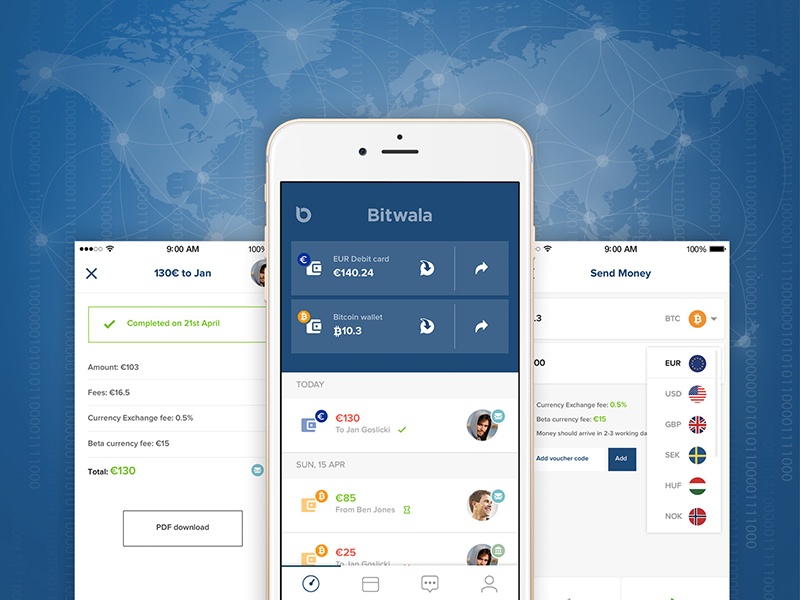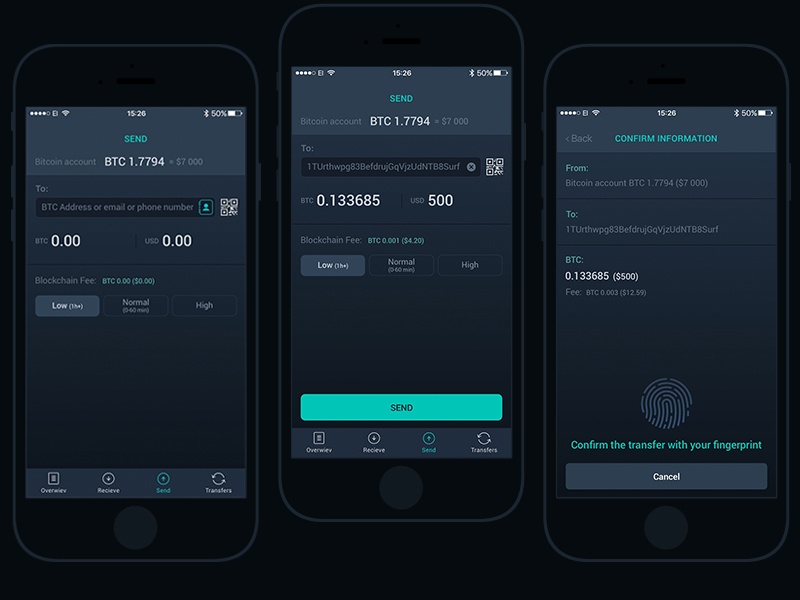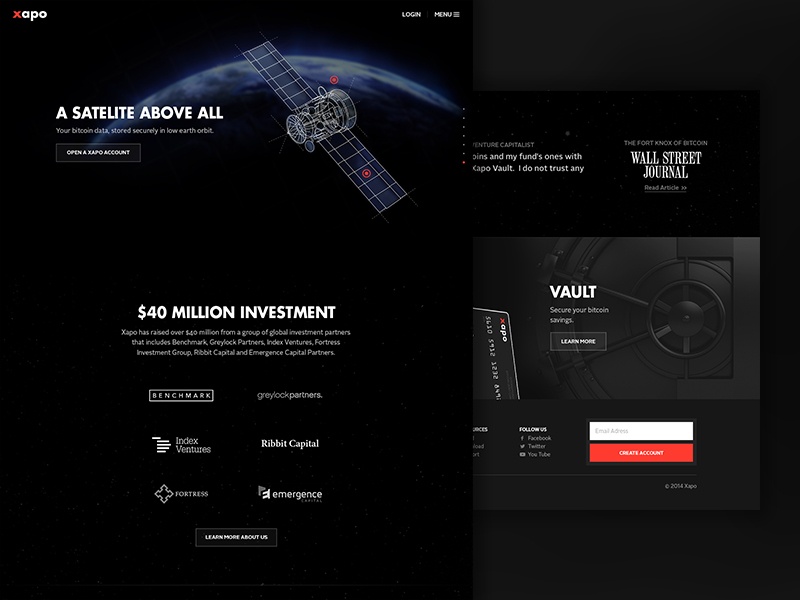Bitcoin was designed as a cryptocurrency, and it was envisioned to be used as one. Some of the most frequently asked questions by the profane members of the Bitcoin community are: Where do I spend it? How do I transact with it in the real world? And the questions are legitimate if we’re honest about it.
Can something be called a currency if you can’t pay your bills or buy food with it?
Certainly not.
As Bitcoin gains popularity more and more merchants are accepting it as payment.
Today, you can book a hotel room on Expedia or buy games online using Bitcoin. But can you live on it? Well, the answer is yes, provided you’re using Bitcoin debit cards.
Years ago, if you wanted to purchase goods and services from a merchant that doesn’t accept Bitcoin, you had to sell your BTC on an exchange, withdraw the fiat currency to your bank account and continue the process.
Who would want to go through all that hassle? Nobody.
And guess what: You don’t have to anymore. Thanks to Bitcoin debit cards.
Bitcoin debit cards provide cryptocurrency enthusiasts with the ability to encompass all the cumbersome steps a bank makes you go through and spend your bitcoins freely. It’s synonymous with a prepaid debit card (MasterCard or VISA) that you can load directly with your bitcoins, and it takes care of the conversion process by itself. You just connect it with your Bitcoin (or other altcoins) wallet and spend your fiat currency just like you would with any other debit card.
How do I Choose the Right Bitcoin Debit Card?
There are many cryptocurrency debit card providers on the market and many types of cards, so before you do anything, you should do your research.
No worries. Let me make the research part easier for you.
Virtual or Plastic card?

The first choice you will be faced to make is whether to go for a plastic Bitcoin debit card or a virtual one? A plastic debit card is just a regular VISA, or MasterCard loaded with Bitcoin-denominated in USD, EUR, GBP or RUB and it can be used for non-cash payments, online purchases and ATM withdrawals anywhere in the world where VISA and Master Cards are accepted.
The normal shipping of the plastic cards is usually free and expedited delivery is somewhere between 45-75 dollars depending on the provider. Moreover, most of the providers offer smartphone apps to improve your user experience and allow you to manage your finances anytime and anywhere.
Anonymous or Verified card?
Anonymous bitcoin debit cards are for users who would like to spend their money but keep their identity concealed. Since the industrial revolution, it seems like the world has been increasingly advancing towards the Orwellian dystopia to such a point that, when you read “concealed identity” your mind gets instantly triggered into thinking “criminal activity.”
We have gotten used to being under surveillance and control to such a point that we have to think of “legit” reasons to remain anonymous. You have a human right to privacy, and that’s that.
It is important to note that anonymous Bitcoin debit cards have limitations on the amount of money you can load them with. Usually, they go from $500 to $2500 in the lifetime of the card and sometimes they also have a lower daily withdrawal limit than verified cards. Upon registration, you will be required to provide only a name you wish to display on your card.
Note: Some ATMs and merchants may refuse to accept an anonymous debit card for various reasons.
Verified cards, on the other hand, require you to submit some form of identity verification document (passport, government-issued ID card, etc…) but usually have no loading limits in their lifetime and the daily withdrawal limits are ordinarily $2500. They can be funded by other cards (PayPal for example) or directly by your wallet and used anywhere VISA or Mastercard is accepted.
How do I Choose the Right Bitcoin Debit card Provider?
Bitcoin is going strong for almost nine years now, and there are many established companies and startups providing bitcoin debit cards on the market. However, choosing one is not as easy it might seem. There are many factors to consider when choosing your ideal Bitcoin debit card provider.
-
Transparency
The first thing you look for when choosing a provider is whether they provide sufficient information about their ownership structure and the establishment date of the company as well as its primary location. You need to be wary of the person who you entrust your money with.
The reason why I’m telling you this is because there have been many cases of fraudulent activities involving debit card providers by now, and insufficient transparency of the company is one of the biggest red flags to look for.
Legitimate businesses have nothing to hide.
-
Customer Support
The customer support provided by the debit card issuer is one of the key contributing factors to the overall user experience. Users want quick access to their funds. Whether you use the card for traveling abroad or for daily transactions, the payment verifications have to be seamless and when things go wrong, you need somebody to resolve the issues faced.
A quick Google search for the brand’s customer support rating and user satisfaction is obligatory before you decide which debit card provider to choose.
-
Services Provided
The next thing you want to do is to compare the services provided by several different Bitcoin debit card providers. This may be a deciding factor because there are many critical services a provider has to offer to make their debit card attractive.
Seek out answers to the following questions: Do they support other altcoins and how many of them? Do they run their own exchange with a wallet or you have to acquire cryptocurrencies in advance before you load your debit card? Do they ship the plastic cards to your country and provide customer support? Can they denominate your cryptocurrency in the fiat currency of your preference?
Considering the big price volatility and constant rise in the value of Bitcoin, one of the most important deciding factors may be the method the provider uses to load the debit cards. Some providers offer credit cards that can be “instantly loaded” when you use them to pay for goods and services in your everyday life.
Your cryptocurrency essentially remains in your wallet up until the moment you swipe your card to make a purchase. When you do, the card instantly takes your cryptocurrency from your wallet, exchanges it for fiat and uses that fiat currency to make the purchase. This loading method gives you a great advantage over “pre-loaded” cards.
Just think about it. Imagine you pre-loaded your bitcoin debit card with $500 and didn’t use it for a week. Meanwhile, the value of bitcoin went up for 20% which is not uncommon in the cryptocurrency game. You would have lost $100 of purchasing power if you had spent your money on the day you loaded it.
-
Fee policy
This is where you’ll have to take your calculator out. The first things you have to consider are the price of the card plus, the delivery costs and monthly maintenance/inactivity fees.
The initial debit card prices range from $5 to $20, and expedited delivery is 50-75 dollars. The monthly maintenance fees are usually around 1 USD. If you plan to use a verified card, load it with some serious cash and use it for a long time, then these costs are negligible.
You should concern yourself primarily with loading and conversion fees. Providers typically charge two types of loading fees, a percentage fee usually around 1% and a flat fee ranging from 1 to 3 dollars every time you load your card. The flat loading fee is more suitable for users that load bigger sums of money at once and the percentage fee for users that prefer loading smaller quantities on a regular basis.
The foreign transaction fee or the “conversion” fee is somewhere between 1.5% to 3%, so make sure you choose a debit card that supports your local currency. Bitcoin debit card providers make most of their money from ATM withdrawal fees. These usually range from 2 to 3 dollars for domestic cash withdrawals to 3-4 dollars for international cash withdrawals. Some card providers may charge the additional percentage fee on withdrawals or transactions.
So, please ensure that you read the provider’s fee policy carefully.
4 Reputable Bitcoin Debit Card Providers
Now that you have acquainted yourself with all the information needed to choose the perfect Bitcoin debit card, in this article we’ll suggest and break down four well-respected Bitcoin debit cards, to help ease your way into making the right arrangement.
Bitwala aims to provide blockchain-based banking services that are faster, cheaper and accessible to anyone in any part of the planet.
They’re a small team of 22 people from 13 different nationalities based in Kreuzberg, Berlin. They offer plastic and virtual debit cards that can be loaded with 20 different fiat currencies and 44 cryptocurrencies. They denominate the cryptocurrencies in USD, EUR, GBP and many Asian currencies (KRW, CNY, JPY).
On their blog, they have compared the cost of the Bitwala debit card from service providers that offer to accept converted bitcoin as payment and obtained the information shown on the relevant provider websites on October 10th 2017 in 15 random time slots within ±24 hours. According to their study, they offer the cheapest services on the market.
The Bitwala plastic cards are accepted anywhere a standard VISA debit card is admitted. Also, they support the SegWit which enables users to save up to 50% on network fees because of the scaling issues of Bitcoin. One of the biggest drawbacks of Bitwala is that they don’t offer their services to USA citizens due to the strict cryptocurrency regulations in the USA.
Fee policy:
Physical Card issuance & delivery – € 8.00
Virtual Card – € 2.00
Top Up (minimum fee € 1) – 0.50 % – Per Transaction
Purchase Transaction – € 0.00
ATM Transaction Domestic – € 2.25 – Per Transaction
ATM Transaction International – € 2.75 – Per Transaction
Monthly Maintenance Fee – € 1.00 – Per Month
Foreign Transaction Fee – 3.00 % – Per Transaction
Card to Card Transfer – € 0.25 – Per Transaction
ATM PIN change Fee – € 0.80
Card Replacement – € 8.00
Expedited Shipping (DHL Express) – € 69.00
Shift market themselves as “the first US Bitcoin debit card” available only in 45 out of 50 states at the moment. The company supplies a debit card that is connected to your Coinbase account, and it comes with a handy app for iOS or Android, enabling you to manage your balance and track your transactions.
The Shift Card is one of the most popular cryptocurrency debit cards available due to the fact that they’re the only provider in the USA and they have relatively low fees. The company is reputable and secure. The biggest impediments of the Shift debit card are the withdrawal limits. Shift sets the load limit at $1000 and the ATM withdrawal limits at $500 if you’re spending from Dwolla account and $200 a day from your Coinbase account.
Fee policy:
Card Issuance / Replacement – $10.00
Annual Fee $0.00
Domestic Transactions $0.00 – 0% BTC to USD conversion fee
Domestic ATM Withdrawals – $2.50 – ATM operators may apply an additional fee
International Transactions – 3%
International ATM Withdrawals – $3.50 – ATM operators may apply an additional fee
Founded in October of 2013, Cryptopay is a wallet and payment platform where merchants and consumers can make transactions with each other while also being backed by the new bitcoin payment protocol.
The Cryptopay cards are accepted all over the world although the number of countries where they issue and deliver the plastic cards is limited. At the moment, the verified debit card services aren’t available for USA citizens due to the US financial regulation and digital currencies policy.
They are one of the largest debit card providers on the market at the moment, managing around 100.000 transactions every month. They offer both virtual and plastic VISA debit cards to both verified and unverified users. One of the best features of Cryptopay are the loading limits. For verified users, the max daily load is an astounding $20.000 with a single top-up of 10.000 USD with maximum daily ATM withdrawals of $2000. Max lifetime load is of course unlimited! The plastic cards are available in EUR, GBP, and USD and they’re priced at $15.
Fee policy:
Card price -$15.00
Standard worldwide delivery -Free
Express worldwide delivery- $75.00
Domestic ATM Transaction -$2.50
International ATM Transaction -$3.50
Foreign transaction fee -3%
Monthly service fee -$1.00
Loading fee – 1%
Third-party loading fee – 1.99%
Xapo is a cryptocurrency debit card provider registered in Hong Kong with offices in the US, Palo Alto, and California. They pride themselves on their maxed out security infrastructure: SSL encrypted website, multi-sig technology, physical servers stored in a Swiss military bunker… you get the point; they take the security of your funds rather seriously.
Xapo is a very prominent financial institution with a distinguished executive structure and some very reputable advisors such as Lawrence H. Summers, former Secretary of the Treasury under President Bill Clinton, Dee Hock, the founder of Visa and John Reed, former Chairman & CEO of Citibank.
Xapo offers their services in most countries worldwide, including the US and supports dozens of fiat and cryptocurrencies. A 24/7 customer support and Android and iOS mobile app support are incorporated into your overall debit card experience.
The Xapo Card exchange rate maintains a slight difference to the exchange rates you’ll find on popular bitcoin exchanges. The Card bitcoin price is also different from the bitcoin price you will see on Xapo when you buy bitcoins with Xapo – the price includes a spread which may occasionally allow Xapo to earn a small revenue based on this type of differential currency exchange.
Fee policy:
Xapo Virtual Card Issuance Fee (one-time cost) – FREE
Xapo ATM Card Issuance fee (one-time cost)
Annual Fee – FREE
Purchase in card’s spending currency – FREE
Foreign Exchange Purchase 3%
Xapo ATM Card Costs
ATM Withdrawal (in card’s spending currency) – $2.50
ATM Withdrawal (in other currencies) – $3.50
PIN Change Fee – $1.00
Shipping Costs
Standard Shipping – FREE
Slow Trackable shipping – $10.00
DHL Expedited Shipping – $55.00
ATM Card + standard delivery (total price) – $20.00
ATM Card + standard trackable shipping (total price) – $30.00
ATM Card + DHL Express shipping (total price) – $75.00
Card Replacement – €10.00 £7.00 $12.00
Are Bitcoin Debit Cards for you?
Cryptocurrency debit cards are the most convenient way of breaching the barrier between the old financial world of banks and the new, decentralized cryptocurrency realm. One of the biggest impediments to massive cryptocurrency adoption is the misconception that cryptocurrencies are intangible monies on the internet. The steep learning curve associated with the technology underlying them doesn’t help either.
I think that cryptocurrency debit cards are the adequate means to spread massive adoption of cryptocurrencies and hopefully eliminate the entry barriers to the market. Everyone is already familiar with debit cards; they’re a part of our everyday lives, and if we manage to pair that with all the benefits of the blockchain technology, we’re potentially looking at a far superior, customer-oriented money transfer system.
Spending bitcoins has never been easier.
If you have any questions regarding the use of Bitcoin debit cards, leave a comment below.
Feature image by Rob Eradus



